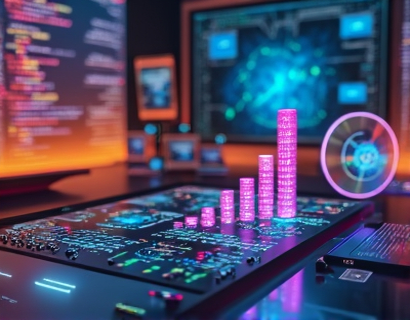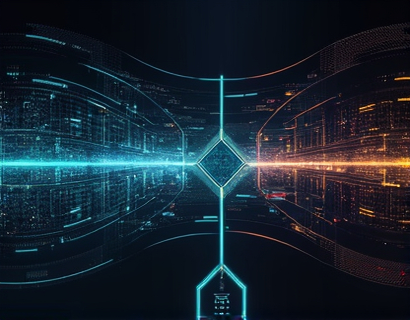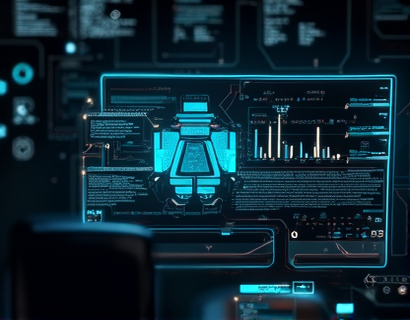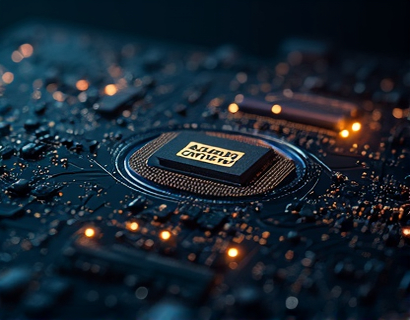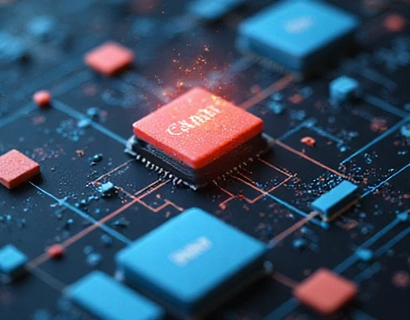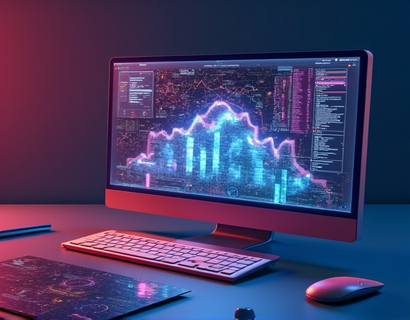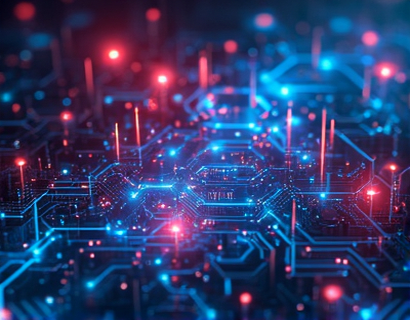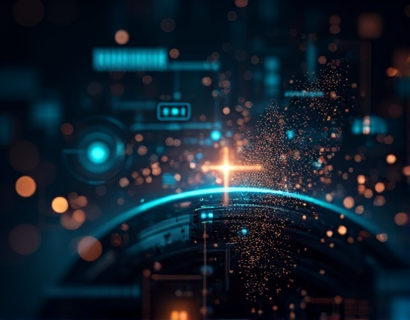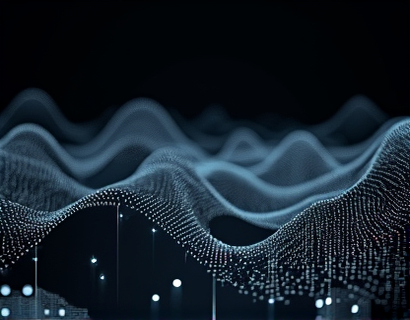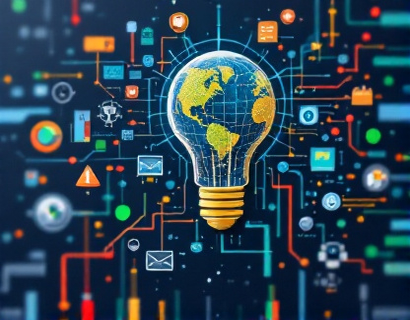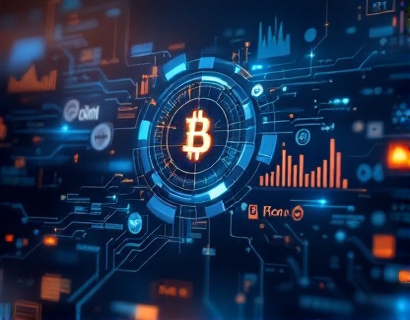Decentralized Productivity: Maximizing Efficiency with AI and Crypto Integration
The integration of artificial intelligence (AI) with cryptocurrency and decentralized technologies is ushering in a new era of productivity and efficiency. This convergence is redefining how we approach digital workflows, offering unprecedented opportunities for professionals and businesses alike. In this article, we will explore the transformative impact of decentralized applications and advanced AI tools, and how their seamless integration can enhance productivity in the modern landscape.
Decentralized applications, or dApps, operate on blockchain networks, which are inherently secure, transparent, and resistant to censorship. These applications leverage smart contracts to automate and enforce agreements without the need for intermediaries. When combined with AI, the potential for innovation and efficiency gains becomes immense. AI can process vast amounts of data, identify patterns, and make predictions, all of which can be harnessed within decentralized frameworks to create more intelligent and autonomous systems.
The first step in understanding this convergence is to grasp the fundamentals of decentralized technologies. Blockchain, at its core, is a distributed ledger technology that records transactions across multiple computers. This decentralization ensures that no single entity has control over the entire network, reducing the risk of fraud and increasing trust among users. Smart contracts, self-executing contracts with the terms directly written into code, are a key component of decentralized applications. They automate processes, reduce human error, and ensure that agreements are enforced precisely as intended.
AI, on the other hand, brings a different set of capabilities to the table. Machine learning algorithms can analyze complex data sets, recognize patterns, and make decisions with minimal human intervention. Natural language processing (NLP) allows AI to understand and generate human language, making it possible to create more intuitive and user-friendly interfaces. When these technologies are integrated with decentralized systems, the result is a powerful toolset for enhancing productivity and streamlining workflows.
One of the primary benefits of integrating AI with decentralized applications is the ability to create self-sustaining systems. For instance, a decentralized marketplace can use AI to dynamically adjust prices based on supply and demand, optimize inventory management, and even predict consumer behavior. This level of automation not only reduces the need for manual intervention but also ensures that the system operates efficiently and effectively at all times.
Another significant advantage is the enhancement of data security and privacy. Decentralized systems inherently provide a higher level of security compared to centralized counterparts, as there is no single point of failure. AI can further bolster this security by detecting and mitigating potential threats in real-time. For example, AI-driven security protocols can monitor network activity, identify anomalies, and take preventive measures to protect against cyber attacks.
In the context of productivity, the integration of AI and decentralized technologies can lead to more efficient task management and collaboration. Decentralized project management tools can use AI to assign tasks based on team members' availability and expertise, optimize work schedules, and ensure that projects stay on track. This not only saves time but also reduces the overhead associated with traditional project management methods.
Moreover, AI can facilitate better decision-making within decentralized organizations. By analyzing data from various sources, AI can provide insights that help in strategic planning and resource allocation. For instance, a decentralized supply chain can use AI to predict demand, optimize logistics, and reduce costs. This level of data-driven decision-making is crucial for maintaining a competitive edge in today's fast-paced business environment.
The user experience is another area where the combination of AI and decentralized technologies shines. Decentralized applications can leverage AI to create personalized user interfaces and experiences. For example, an AI-powered decentralized dashboard can adapt to individual user preferences, display relevant information, and provide actionable insights at a glance. This personalized approach not only enhances user satisfaction but also increases productivity by reducing the time spent navigating through unnecessary information.
Furthermore, the integration of AI with decentralized identity management systems can revolutionize how users authenticate and access services. Self-sovereign identity solutions, powered by blockchain and AI, allow users to control their digital identities and share verification data securely. This not only enhances privacy but also streamlines the authentication process, making it faster and more convenient for users to access decentralized applications and services.
In the realm of content creation and management, AI can significantly enhance the capabilities of decentralized platforms. AI-driven content generation tools can assist in creating high-quality content, from writing articles to designing graphics. When combined with decentralized content distribution networks, these tools can ensure that content reaches the intended audience efficiently and securely. This synergy can democratize content creation and distribution, giving creators more control and better reach.
Another exciting application is in the field of decentralized finance (DeFi). AI can optimize trading strategies, manage risk, and automate transactions within decentralized financial systems. For instance, AI algorithms can analyze market data, identify trends, and execute trades with minimal human intervention. This not only increases the efficiency of financial operations but also opens up new opportunities for investors and traders in the decentralized space.
The integration of AI and decentralized technologies also extends to the Internet of Things (IoT). Decentralized IoT networks can use AI to process and analyze data from various connected devices, enabling more intelligent and autonomous systems. For example, a decentralized smart home system can use AI to learn user habits, adjust settings for optimal comfort and energy efficiency, and integrate with other smart devices seamlessly. This level of integration and automation can significantly enhance the quality of life and operational efficiency.
Looking ahead, the future of decentralized productivity is promising. As AI continues to advance and more organizations adopt blockchain technology, the potential for innovation is vast. We can expect to see more sophisticated decentralized applications that leverage AI for tasks ranging from data analysis to creative problem-solving. The convergence of these technologies will not only enhance productivity but also foster a more inclusive and equitable digital landscape.
In conclusion, the integration of AI with decentralized technologies represents a significant leap forward in digital productivity and efficiency. By harnessing the strengths of both domains, we can create more secure, autonomous, and intelligent systems that transform the way we work and interact with technology. As we continue to explore and develop these cutting-edge solutions, the possibilities for enhancing productivity and streamlining everyday tasks are endless.




